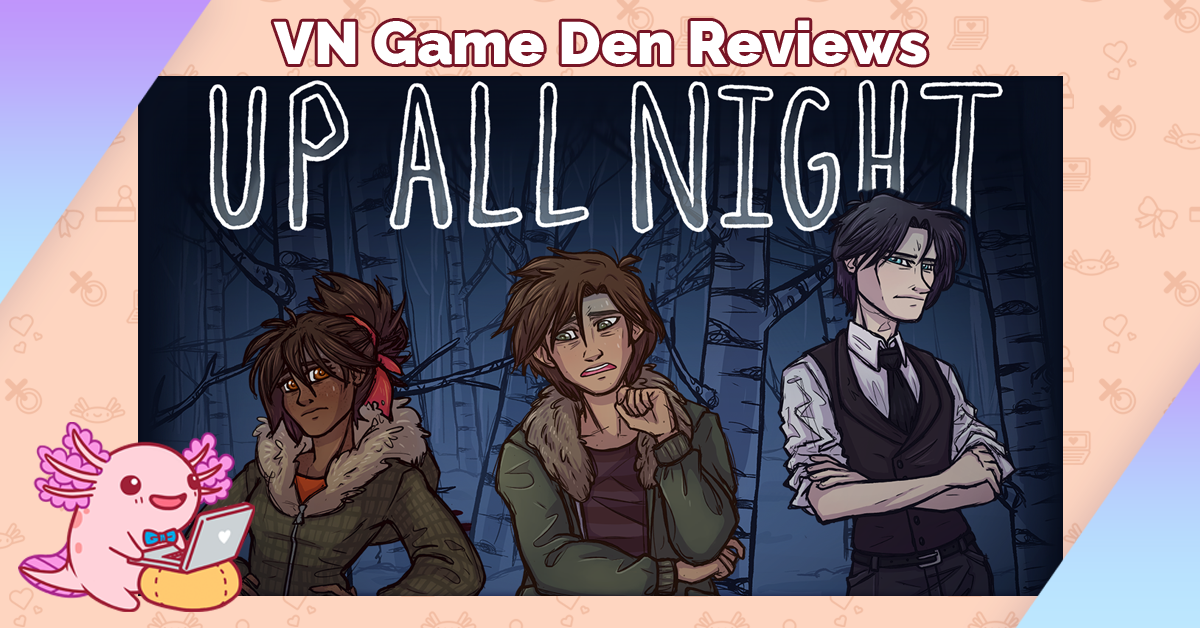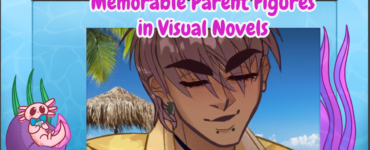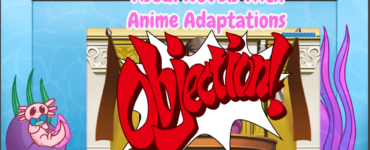Up All Night from Fiendish Fiction is, at its core, a story of the human reaction to trauma. Stuck alone in a cabin after a freak snowstorm, Nick is faced simultaneously with a gruesome murder and constant memory triggers of the worst night of his life. After meeting Felix and Grayson, every secret he unearths just sends him spiraling deeper into a blackness of his own making.
Highly Stylized, Unique Art
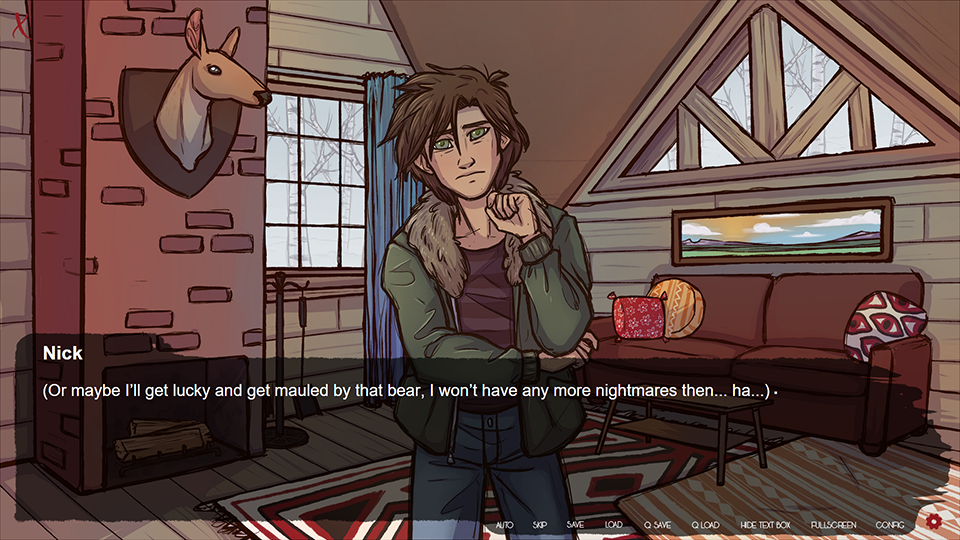
The game lays out a very stylish, captivating art style that pops with a scratchy, rough texture to it. It pairs marvelously with the overall tone of the game. The whole visual feel is equal parts mysterious, dramatic, and unsettling while still being highly emotive and pleasing to look at it. While they’re, narratively, working with only a few physical locations, they do an excellent job of using variations in lighting and form to create a broad range of fully formed set pieces. The CGs and special art effects are lovingly rendered and poised to bring everything together in a very visually striking game.
I also appreciate that for how textually gory the games is, they didn’t actually visually render the worst of the scenes. It’s a technique that’s highly effective at letting the mind fill in the gaps, and is done extremely well in this game.
Taut, Intense Writing
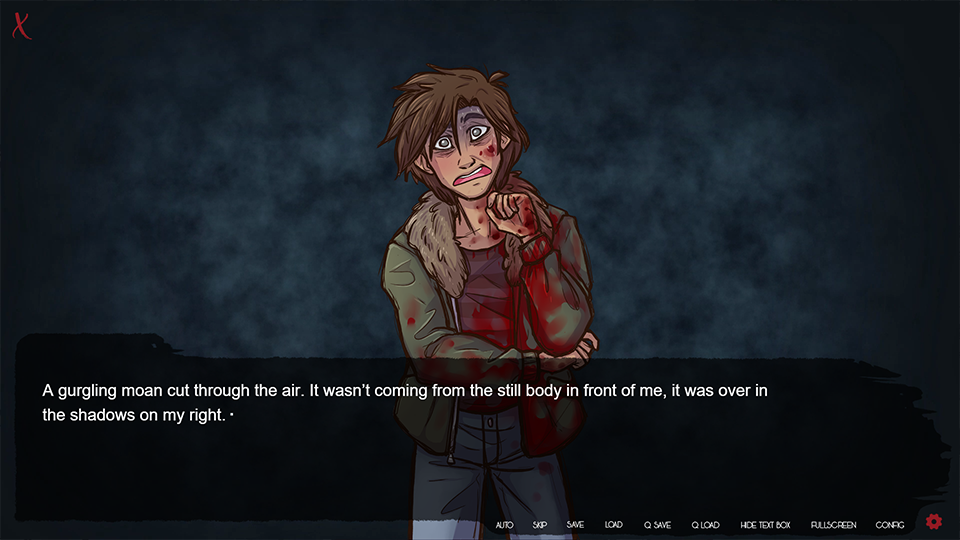
Overall, the writing is solid with this wonderful constantly dread-filled tone. It covers a lot of very real and dark issues in a nuanced way, like PTSD, trauma response, and even cyclic abuse in a vague way in one of the Felix routes. The characters are vocally unique, and the different endings give you slightly different perceptions of the characters that still feel mostly consistent when viewed collectively. Even considering some of their actions, each character has notes of sympathy running through their portrayal, crafting them with complexity and intrigue. I only wish we had more time to sit with more of Grayson’s trauma in particular. She got the short end of the stick as far as story presence and intellectual engagement which just feels unfair to her considering where her place in the story is.
Nick’s episodes of PTSD flashbacks are particularly interesting especially as they interact with a horror story. It reads as an intentional deconstruction of the human interaction with and to horror, and is very thought-provoking. I think they could have spaced some of the breakaways a little better, but it’s very compelling story-telling and characterization.
Some Structural Flaws
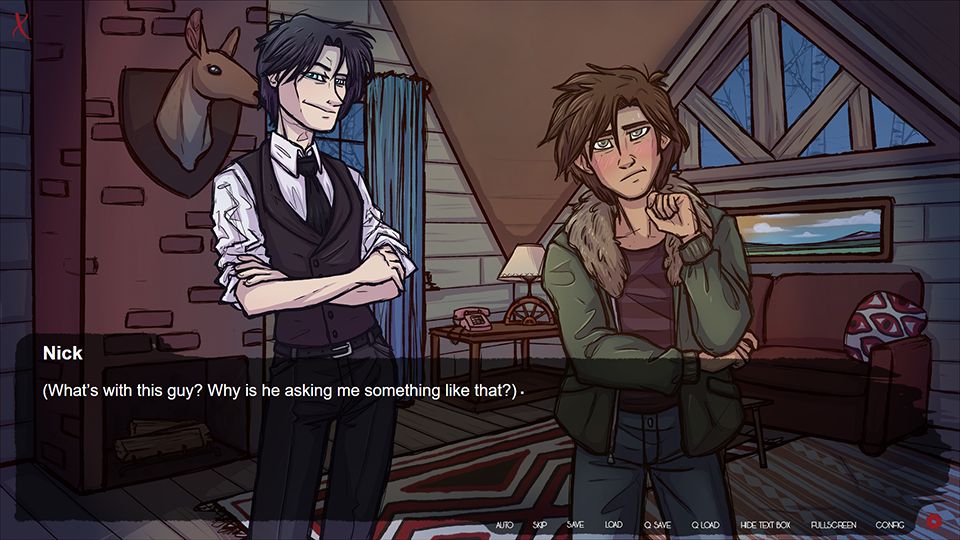
Where I’m still a little personally conflicted, however, are in the endings themselves, how to achieve them, and the story’s overall structure as a mystery. Because you spend more time with Felix (which makes narrative sense), the question to answer ends up being “did Grayson do this” versus “who did this.” None of this deduction even happens until right before the twist of the ending unfolds. So instead of feeling like pieces you’ve put together over the course of the game, it’s a snap decision made after a single accusation.
I also had to use their provided guide for the “true ending” because I couldn’t figure out how to get it. Reading the walkthrough, I had followed the spirit of the guide, but because on subsequent playthroughs I didn’t explore everything again, that ending didn’t trigger. That’s just a minor annoyance, but it also feels a bit like a symptom of a weird choice logic that you just kind of have to muddle through. It’s, again, a lack of feeling that you “solved it” versus “let’s do this this time and see what happens.” These two things combined leave a slight feeling of disconnect between the choices you make and what actually happens, like you’re not quite in control. This could be a really excellent feeling to establish if it was embraced more, but as it unfolds in-game feels like an overlooked flaw, if just a small one.
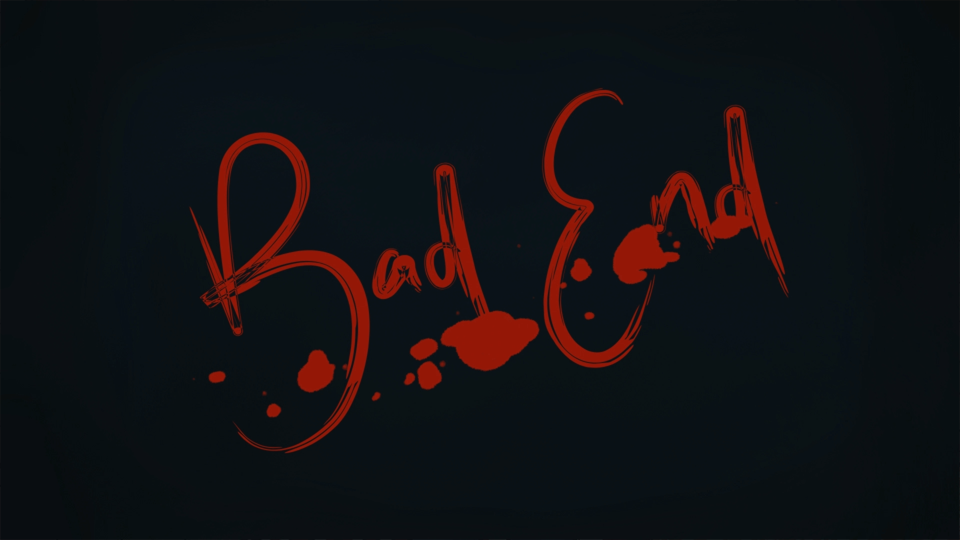
The endings are also really depressing. Of the eight, one is a “true” ending where you personally get out totally unscathed, and it’s still really sad. Personal preference plays into whether this is an appealing thing or not. However, the way the true ending resolved feels a little disingenuous to the very nature of trauma recovery. Nick was involved in a horrible thing, then relived said horrible thing while going through something even worse, and yet he’s suddenly able to start working through it. There’s definitely room for optimism in that ending and the game as a whole, but I’m not sold on what they did being the way to do it.
An Overall Excellent Experience
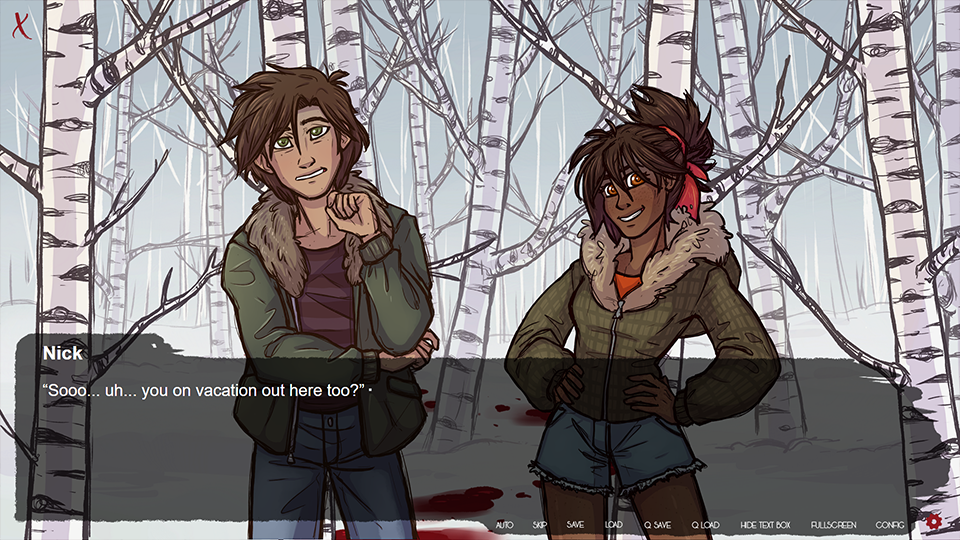
Despite any minor writing grievances, the overall game is fantastic, only elevated by a wonderful score and excellent sound design. Everything comes together to create a unique approach to some old concepts and really force you, as a player, to think about how you interact with your own thoughts and the monsters of the world.
Up All Night is available for free on itch.io.

